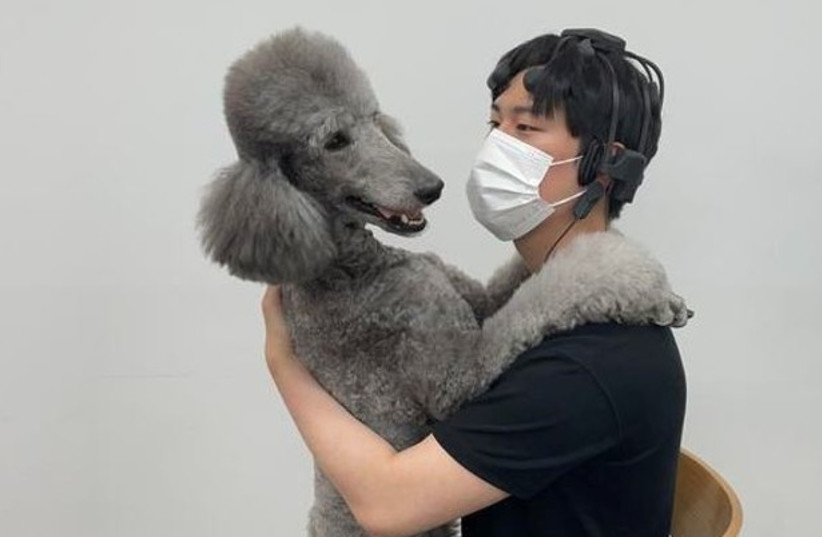Hug your dog - for your own good health, as well as your pet's. A new study from South Korea has found that spending quality time with dogs reduces stress and increases the power of brain waves associated with relaxation and concentration.
Dogs were domesticated from wolves more than 30,000 years ago and have assisted humans in numerous tasks throughout history, including hunting, working, herding, and guarding. They can communicate with people, have been faithful friends to humans, sharing emotions beyond that of an efficient assistant.
Animal-assisted interventions like canine therapy are widely used in hospitals, schools, and beyond to help reduce anxiety, relieve stress, and foster feelings of trust. Studies of the potential benefits of animal interactions often take a holistic approach, comparing people’s mood or hormone levels before and after spending time with a service animal. But this approach doesn’t differentiate among types of interactions like grooming, feeding, or playing with an animal, limiting our understanding of how each specific interaction impacts a person’s health and well-being.
Study findings support hugging your dog
To better understand how such animal-related activities affect mood, Dr. Onyoo Yoo and his colleagues from the bio and healing convergence department at Seoul's Konkuk University in South Korea recruited a small sample of 30 adult participants aged 20 to 40 to each perform eight different activities with a well-trained dog such as playing with a hand-held toy, giving it treats, and taking pictures with it. Participants were recruited between May and June 2022 using recruitment notices posted in pet salons and a dog beauty academy in Seongnam, South Korea.

Participants wore electroencephalography (EEG) electrodes to record electrical activity from the brain while interacting with the dog, and they recorded their subjective emotional state immediately following each activity.
The researchers published their findings in the peer-reviewed, open-access journal PLOS One titled “Psychophysiological and emotional effects of human-dog interactions by activity type: An electroencephalogram study.”
The relative strength of alpha-band rhythm in the brain increased while participants played with and walked the dog, reflecting a state of relaxed wakefulness. When grooming, gently massaging, or playing with the pooches, participants said they felt significantly less fatigued, depressed, and stressed after all dog-related activities.
Previous studies have shown that pet owners who hug, pet, massage, and talk to their dogs softly lower the animals’ blood pressure.
While not all participants had pets of their own, their fondness for animals likely motivated their willingness to participate in the experiment, potentially biasing the results. Nonetheless, the authors state that the unique relationships between specific activities and their physiological effects could serve as a reference for programming targeted animal-assisted interventions in the future.
“This study provides valuable information for elucidating the therapeutic effects and underlying mechanisms of animal-assisted interventions,” the researchers said.
